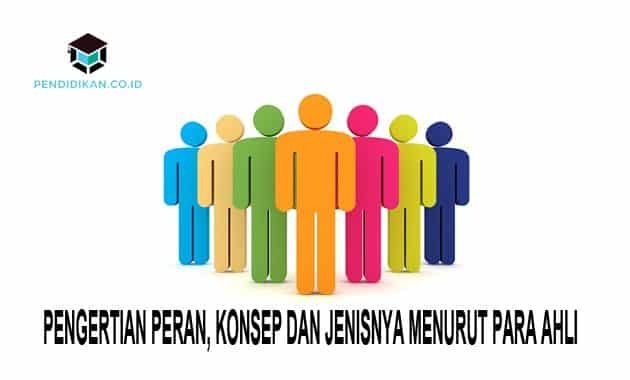Understanding Roles, Concepts and Types According to Experts
Education. Co. ID – On this occasion we will discuss the definition of roles according to experts, also equipped with concepts and types of roles, for a full explanation below:

Definition of Role
Understanding the role is a series of behaviors expected of a person based on social position, both formally and informally.
There are also those who say that the meaning of this role is an action carried out by an individual or a group of people in an organization events or events, and is a form of expected behavior from someone who has a position in Public.
Role is a dynamic aspect of social status or position. That is, when a person can carry out his obligations and also get his rights, that person has carried out a role.
Scope of Role
This role puts forward the function of self-adjustment and as a process. The role of a person includes three things, including:
- This role is part of the rules (norms) that guide a person in society.
- Role is something that should be done by individuals in a society.
- The role is also the behavior of individuals who have an important role in the social structure of society.
Definition of Role According to Experts
In order to better understand what a role is, we can refer to the opinions of several experts below:
According to Suhardono (1994)
The notion of role is a benchmark or measure contained in human life so that it functions to be able to limit behavior in each position.
According to Poerwadarminta
Understanding this role is an action that is carried out by someone based on the background events. These events or incidents can be in good or bad terms according to the environment that is influencing him to act.
According to Soekanto (2009)
According to him, the meaning of this role is a work that is carried out dynamically according to the status or position it holds. These statuses and positions are in accordance with social order, even in the regularity of actions they are adapted to different roles.
According to Riyadi (2002)
The notion of role is an orientation or concept that is formed due to a party in social opposition in people's lives. It is based on the individual and also the reasons for carrying out the desired action.
According to Mifta Thoha (2002)
Role is a series of behavior of a person who is carried out based on his character. This condition can be motivated by a person's psychology in carrying out the desired action, according to his heart.
According to Katz and Kahn
The notion of a role is an action taken by a person based on his character and position. This is based on the functions carried out in showing the position and personality character of each human who runs it.
Role Concept
From the explanation above, we already know that the role and social status are two things that cannot be separated. There are role concepts including the following:
1. Role Perception
Role perception is our view of the actions that should be taken in certain situations. These perceptions are based on interpretations of what we believe about how we should behave.
2. Role Expectations
This role expectation is something that other people have believed how a person should act in certain situations. Much of a person's behavior is determined by the roles defined in the context in which the person acts.
3. Role Conflict
When a person is faced with different role expectations, it will lead to role conflict. The conflict will arise when someone realizes that the requirements of one role are more difficult to fulfill than other roles.
Role Structure
In general, this role structure can be grouped into two (2) parts, including the following:
1. Formal Role
This formal role is a role that seems clear, namely all behaviors that are homogeneous in nature. For example, in the family, husband/father and wife/mother have roles as providers (providers), household managers, caring for children, recreation, and others.
2. Informal Role
This informal role is a closed role, namely a role that has an implicit (emotional) nature and is generally not visible on the surface. The purpose of this informal role is to fulfill emotional needs and also maintain balance in the family.
Role Types
From the explanation above, roles can be divided into three types. According to Soerjono Soekamto, the types of these roles are as follows:
1. Active Role
An active role is a person's role as a whole, always active in his actions in an organization. This can be seen or measured from its presence and also its contribution to an organization.
2. Participative Role
A participatory role is a role that is carried out by someone based on needs or only at certain times.
3. Passive Role
A passive role is a role that is not carried out by individuals. That is, this passive role is only used as a symbol in certain situations in people's lives.
Now that's an explanation of the Definition of Roles, Concepts and Types According to the Experts, hopefully what is described above can be useful for you.
See AlsoUnderstanding Business Communication, Elements, Objectives, Functions and Forms
See AlsoUnderstanding Imperative, Declarative, Interrogative Sentences, Characteristics and Examples
See AlsoUnderstanding Rupiah Redenomination, Benefits, Stages and Risks
